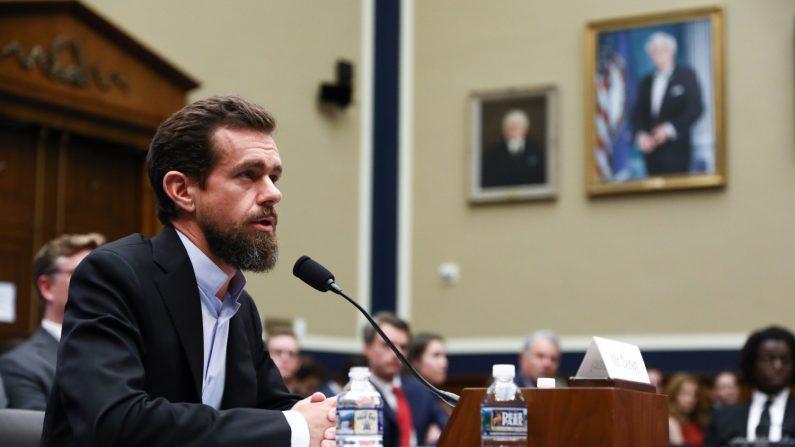Twitter CEO Jack Dorsey acknowledged that his social-media platform recently switched off an algorithm that has been connected with the practice of shadow banning—the unannounced suppression of a social-media users’ content. The practice appeared to be directed mainly toward conservatives, and in particular, supporters of President Donald Trump.
Dorsey also said the company has a long way to go to ensure its algorithms aren’t biased, according to his written testimony released on Sept. 5 before he answered questions of the House Committee on Energy and Commerce.





